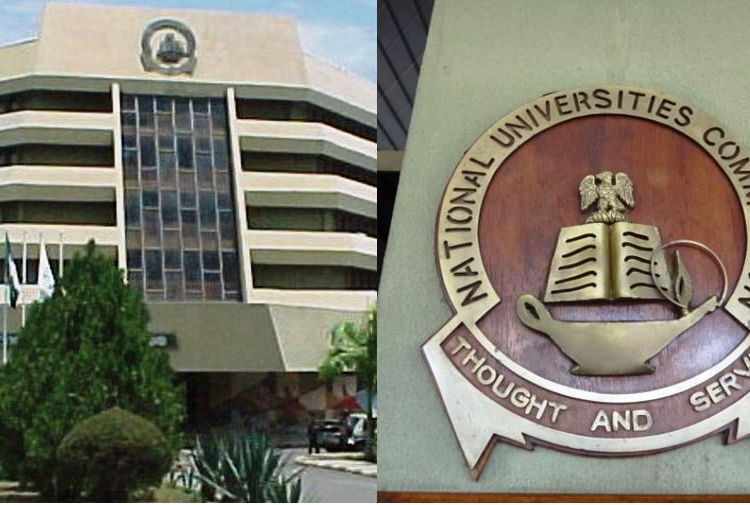Experts in the education sector are, literally, shouting themselves hoax over the declining quality of both the curriculum and products of institutions from primary to the tertiary level.
This concern swells from the fact that Nigerian universities which used to attract students and faculty members from across the world are, today, enclaves of primordial sentiments applied, religiously, in student admission and faculty recruitment processes. Without warning and due to the implied mismanagement of systems in the country, that attraction is all but lost.
What obtains is that the nation’s university system is in reverse gear with a frightening trend that is posing a great danger to the nation’s socio-economic development as Nigerians are seeking educational upliftment elsewhere. When it is not the mass exodus of faculty members from the tertiary institutions, it is the seemingly insatiable desire for foreign education by parents and their wards. And foreign includes Togo, Benin Republic and Ghana.
The understanding is that there is palpable loss of confidence in the Nigerian education system to the point that foreign schools are now the best on offer. Not to be misunderstood, universities across the world are international communities that draw teachers and students from all over. But the concern about what is going on in the country is the perception, especially by the elite, that Nigerian institutions are not good enough for their wards.
And these are the same individuals, both in private and public sectors, who are in a position to make or influence policies for the enhancement of the system. This necessitated the clamour for a deliberate paradigm shift, spear-headed by the private sector – individuals and corporate bodies.
It is from this perspective that we have a feeling of exhilaration that is so reassuring based on the response of a banker who is consumed by the quest for excellence. This feeling is also bolstered by the relief that in the midst of the apparent confusion in the sector, the private sector has decided to take the initiative in the drive to restore confidence in the nation’s university system. The effort is in top gear already.
Wigwe University is joining at a time that is considered most auspicious as the sponsor has a pedigree of success in other endeavours that speak for themselves.
For the record, as at June this year when the National Universities Commission (NUC) approved and issued 37 new licenses, the country has 264 universities. The massive expansion of the university system must be encouraged even as we take it for granted that such infusion of private capital and know-how will yield the desired result.
With a planned injection of $500 million and the ongoing engagement in partnerships that align with its core values and would support its vision to groom future generations of fearless African leaders, innovators and entrepreneurs, the emergence of Wigwe university may yet be one of the insightful prospects that the Nigerian university system is set to regain its lost glory.
Set up with the vision to ignite Africa’s potential for prosperity, nurture responsible, fearless leaders, and become the leading university in Africa, the tertiary institution is set to blaze a peculiar trail.
We are enamoured by the expectation that the institution that boasts of experience, sound funding and international exposure will, ultimately, set a standard of educational distinction for the continent, students and educators, nurturing the next generation of African leaders to become guiding lights for positive impact in a rapidly changing world.
This newspaper is hopeful that this institution that is aspiring to compete with the Harvards and Oxfords of this world will, similarly, provide the credible alternative to the anxieties generated by the frenzy of seeking education, sometimes of doubtful quality, abroad.
If and when the Wigwe University, in particular, and others like it, are able to satisfy the best parents and their children crave for, the country may be on its way to conserving huge foreign exchange wasted, in our view, in search of education in foreign lands. A recent Central Bank of Nigeria (CBN) report indicate that Nigerians spend $221 million on foreign education in three months. No country can easily afford that.
It is lamentable just as it is counter-intuitive that over $3bn value of Form ‘A’ was approved in 2022 by CBN for payment of tuition to foreign universities. This is in line with CBN’s efforts to support education and promote economic growth.
The tragedy of it is that, a high percentage of these students are induced to remain in their host countries, rather than return to Nigeria to contribute to nation building for economic growth. The access to foreign exchange from other sources is estimated to be around $20bn between 2021/2022.
The advantage ambitious institutions, like the Wigwe University, have, in our considered opinion, is its determination to provide world-class curriculum and faculty that is innovative, new age, relevant and industry-led.
Already, it is innovating a curriculum within NUC approved ambits, to create an exciting cocktail of cross and multi-disciplinary degrees and courses which would prepare students for the current skills’ requisitions of the fourth industrial revolution, future of work, leadership capacity and entrepreneurial pursuits and fill their aspirations.





